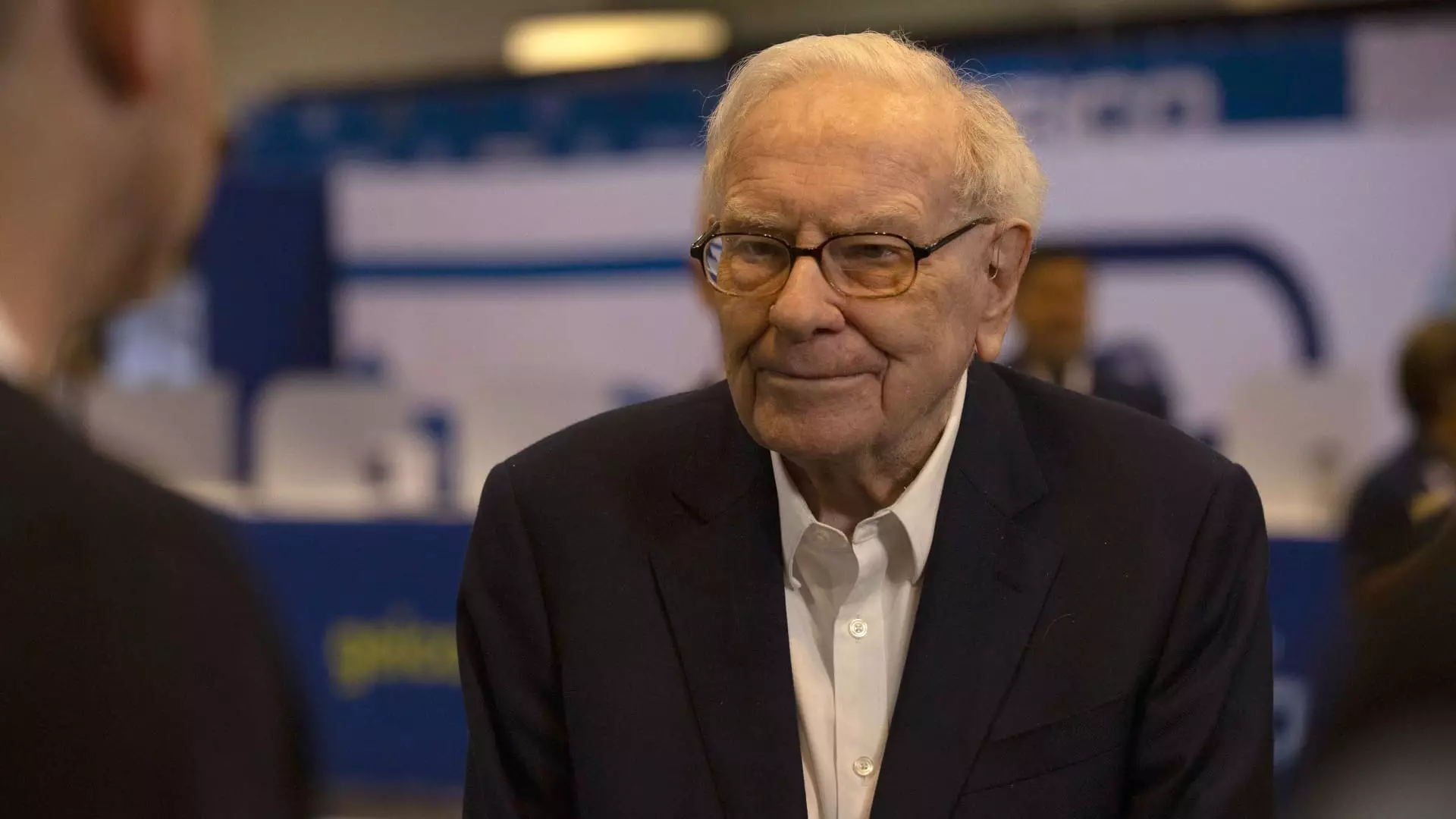Warren Buffett, arguably one of the most successful investors of our time, is known for his astute decision-making in stock acquisitions and divestitures. However, recent developments indicate a significant change in strategy regarding Bank of America (BofA). Berkshire Hathaway has reduced its stake in BofA to below the 10% mark, a move that not only signals a shift in Buffett’s investment philosophy but also raises questions about the future of banking investments in the current economic landscape.
On a Thursday evening, a filing with the U.S. Securities and Exchange Commission revealed that Buffett’s firm divested over 9.5 million shares of Bank of America through three transactions between Tuesday and Thursday. This sale brought Berkshire’s holdings down to approximately 775 million shares, or a 9.987% ownership stake. Crossing under the critical 10% threshold means that Berkshire Hathaway now has less regulatory burden in terms of timely reporting of its transactions. The implications of this strategy could reflect a more cautious approach to volatile financial markets, particularly within the banking sector.
Market Reactions and Future Implications
Despite the divestiture, shares of Bank of America have seen a minor increase of about 1% over the past month. This could be attributed to the bank’s own stock repurchase initiatives, which help stabilize share prices in difficult times. With Buffett no longer mandated to share immediate insights about further transactions, speculation abounds regarding Berkshire’s future moves and investment strategies. The upcoming 13F filing in mid-November will provide a clearer picture of Berkshire’s equity holdings as of September, but until then, Berkshire Hathaway observers are left to conjecture about whether this stake reduction signals a fundamental pivot in Buffett’s views of the banking industry.
Buffett’s relationship with Bank of America dates back to 2011, when he invested $5 billion in preferred stock and warrants to bolster confidence in the financially weakened bank in the aftermath of the subprime mortgage crisis. His subsequent conversion of these warrants into common stock completed a significant transition for Berkshire, establishing it as BofA’s largest shareholder. However, this recent reduction follows a pattern: Buffett’s divestments in other major banks like JPMorgan, Goldman Sachs, Wells Fargo, and U.S. Bancorp indicate a broader trend of skepticism towards banking investments amid increased market volatility.
Buffett’s outlook on the banking sector has grown increasingly cautious, particularly following the tumultuous events surrounding U.S. banks in 2008 and 2023. He has highlighted concerns about the “stickiness of deposits,” asserting that significant historical crises have shaped public perception and trust in banking institutions. Coupled with the rise of fintech and the ease of executing bank runs, Buffett’s investment philosophy in this sector may be adapting to address these evolving risks.
The reduction of Berkshire Hathaway’s stake in Bank of America encapsulates a moment of reflection and strategic reevaluation for Buffett and his team. As they navigate through a rapidly changing financial landscape, investors and analysts alike will be keenly observing how this decision influences both BofA and other financial institutions going forward. Buffett’s choices will undoubtedly have ripple effects on market confidence and investor sentiment, especially given his reputation as the “Oracle of Omaha.” In a world marked by constant change, his next moves could very well redefine his long-held strategies in the banking sector.

